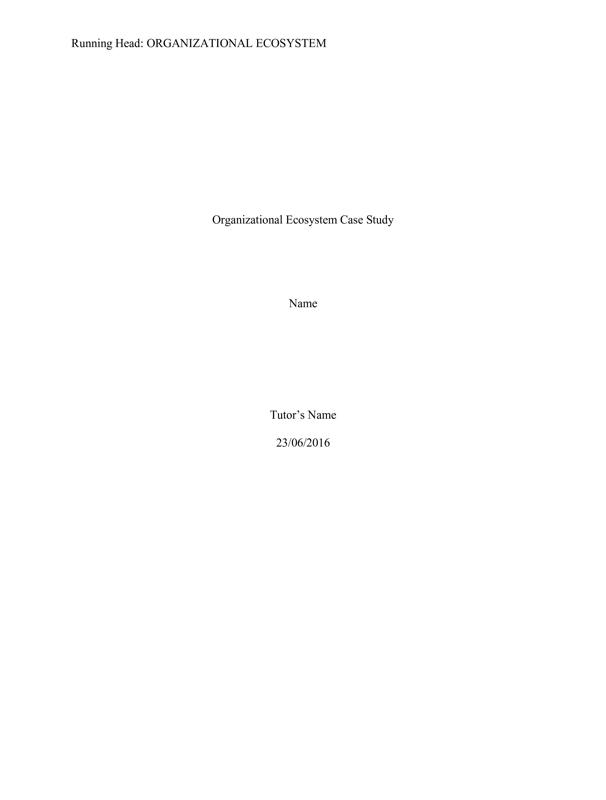Do Online Algorithms Contribute To Mass Violence? Examining The Link

Table of Contents
The Role of Echo Chambers and Filter Bubbles
Online algorithms are designed to personalize our digital experiences, tailoring content to our individual preferences. However, this personalization can have unintended consequences. Algorithms prioritize engagement, often prioritizing sensational or emotionally charged content, even if it's inaccurate or harmful. This creates:
Amplification of Extremist Views:
- Engagement-driven algorithms: Many platforms prioritize content that generates high engagement, regardless of its truthfulness or potential for harm. This means that inflammatory or extremist viewpoints, often designed to provoke strong reactions, can be amplified disproportionately. Facebook's News Feed algorithm, for instance, has faced criticism for its role in spreading misinformation and conspiracy theories.
- Confirmation bias reinforcement: Algorithms can reinforce pre-existing beliefs by primarily showing users information that confirms their worldview. This creates echo chambers, where individuals are primarily exposed to similar opinions, leading to increased polarization and the potential for radicalization. Studies have shown a correlation between time spent in online echo chambers and the adoption of extremist beliefs.
- Lack of diverse perspectives: The constant reinforcement of similar viewpoints restricts exposure to alternative perspectives, hindering critical thinking and making individuals more susceptible to extremist ideologies.
Limited Exposure to Diverse Perspectives:
- Filter bubbles: These bubbles limit exposure to diverse opinions, creating an insulated environment where dissenting views are rarely encountered. This can lead to a lack of empathy and understanding for opposing viewpoints, exacerbating social divisions.
- Political polarization: The lack of exposure to diverse perspectives contributes to political polarization, increasing the likelihood of conflict and potentially escalating tensions into violence.
- Countering filter bubbles: Initiatives promoting media literacy, fact-checking, and the use of diverse news sources can help mitigate the effects of filter bubbles. However, these initiatives often struggle to keep pace with the rapid evolution of algorithmic personalization.
The Spread of Misinformation and Disinformation
The speed and reach of online platforms, combined with algorithms designed to maximize content spread, create fertile ground for the dissemination of harmful misinformation and disinformation.
Algorithmic Amplification of False Narratives:
- Viral hoaxes and conspiracy theories: Algorithms can unintentionally amplify viral hoaxes and conspiracy theories, leading to real-world consequences. The spread of false narratives about vaccines, for example, has been linked to decreased vaccination rates and outbreaks of preventable diseases.
- Speed and reach: Online platforms allow false information to spread rapidly and reach vast audiences, making it challenging to contain its impact. The speed at which misinformation can travel far surpasses traditional media outlets.
- Content moderation challenges: Moderating content on social media platforms is a herculean task, and algorithms often struggle to identify and remove harmful content quickly enough. The sheer volume of content makes real-time monitoring extremely difficult.
The Impact of Deepfakes and Manipulated Media:
- Deepfake technology: Algorithms are crucial in creating deepfakes, which are realistic but fabricated videos or audio recordings that can be used to spread propaganda, incite violence, or damage reputations.
- Legal and ethical implications: The potential for deepfakes to be used maliciously poses significant legal and ethical challenges. Determining the authenticity of online content is increasingly difficult.
- Detection and countermeasures: Efforts are underway to develop technologies to detect and counter deepfakes, but these technologies are constantly evolving alongside the methods used to create them.
Online Radicalization and the Role of Algorithms
Algorithms contribute to online radicalization through targeted advertising and the creation of echo chambers within online communities.
Targeted Advertising and Recruitment:
- Behavioral targeting: Algorithms use behavioral targeting to identify individuals susceptible to extremist ideologies, making it easier for extremist groups to recruit new members.
- Extremist group recruitment: Online platforms have been used extensively by extremist groups to recruit members, using targeted advertising and personalized content to reach potential recruits.
- Regulating online radicalization: Regulating online radicalization is a significant challenge, requiring collaboration between governments, tech companies, and civil society organizations.
Online Communities and Group Polarization:
- Echo chambers and extremist beliefs: Online communities can be manipulated by algorithms to reinforce extremist beliefs, creating environments where radicalization flourishes.
- Community moderation: Effective community moderation is essential to prevent the spread of harmful content and to promote a more inclusive online environment. However, this is a difficult task requiring significant resources and expertise.
- Group dynamics and radicalization: Research on online group dynamics and radicalization highlights the role of algorithms in creating environments conducive to extremism.
Conclusion:
Algorithms are not the sole cause of mass violence, but they undeniably play a significant role in amplifying extremist views, spreading misinformation, and facilitating online radicalization. While research on the exact impact of "online algorithms and mass violence" is ongoing and complex, the evidence suggests a clear need for more responsible platform design and improved content moderation. We must critically examine the ethical implications of algorithmic design and advocate for changes that prioritize accuracy, transparency, and user safety. Let's continue the critical discussion and research surrounding online algorithms and their potential contribution to mass violence, working towards a safer and more informed online environment.

Featured Posts
-
 The Viability Of Manila Bays Vibrant Ecosystem A Case Study
May 30, 2025
The Viability Of Manila Bays Vibrant Ecosystem A Case Study
May 30, 2025 -
 Alcaraz Wins Monte Carlo From Behind To Champion
May 30, 2025
Alcaraz Wins Monte Carlo From Behind To Champion
May 30, 2025 -
 Nueva Integracion Setlist Fm Y Ticketmaster Mejoran La Experiencia Musical
May 30, 2025
Nueva Integracion Setlist Fm Y Ticketmaster Mejoran La Experiencia Musical
May 30, 2025 -
 Did Trump Tariffs Harm Indian Solar Energy Equipment Exports To Southeast Asia
May 30, 2025
Did Trump Tariffs Harm Indian Solar Energy Equipment Exports To Southeast Asia
May 30, 2025 -
 Sacramento County Wastewater Tests Positive For Measles What You Need To Know
May 30, 2025
Sacramento County Wastewater Tests Positive For Measles What You Need To Know
May 30, 2025
